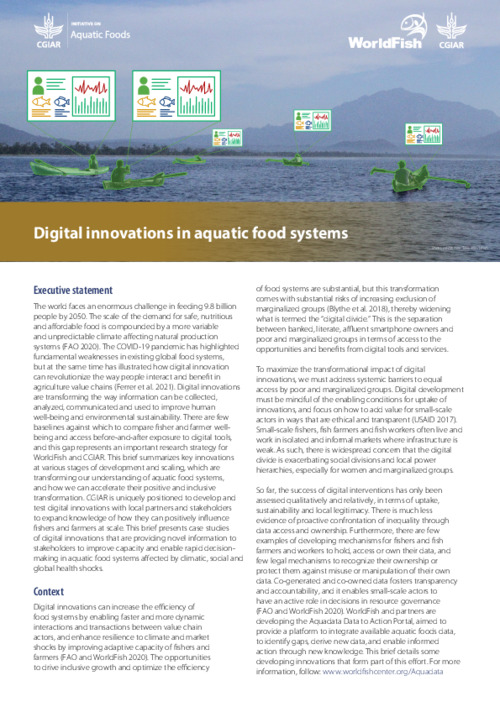Digital Innovations for resilient aquatic food systems

Digital innovations can increase the efficiency of food systems by enabling faster and more dynamic interactions and transactions between value chain actors, and enhance resilience to climate and market shocks by improving adaptive capacity of fishers and farmers (FAO and WorldFish 2020). The opportunities to drive inclusive growth and optimize the efficiency of food systems are substantial, but this transformation comes with substantial risks of increasing exclusion of marginalized groups (Blythe et al. 2018), thereby widening what is termed the “digital divide.” This is the separation between banked, literate, affluent smartphone owners and poor and marginalized groups in terms of access to the opportunities and benefits from digital tools and services. To maximize the transformational impact of digital innovations, we must address systemic barriers to equal access by poor and marginalized groups. Digital development must be mindful of the enabling conditions for uptake of innovations, and focus on how to add value for small-scale actors in ways that are ethical and transparent (USAID 2017). Small-scale fishers, fish farmers and fish workers often live and work in isolated and informal markets where infrastructure is weak. As such, there is widespread concern that the digital divide is exacerbating social divisions and local power hierarchies, especially for women and marginalized groups.
Permalink
Date Available
Type
Publisher
Copyright
CC-BY-NC-4.0
Research Themes
Topics
Language